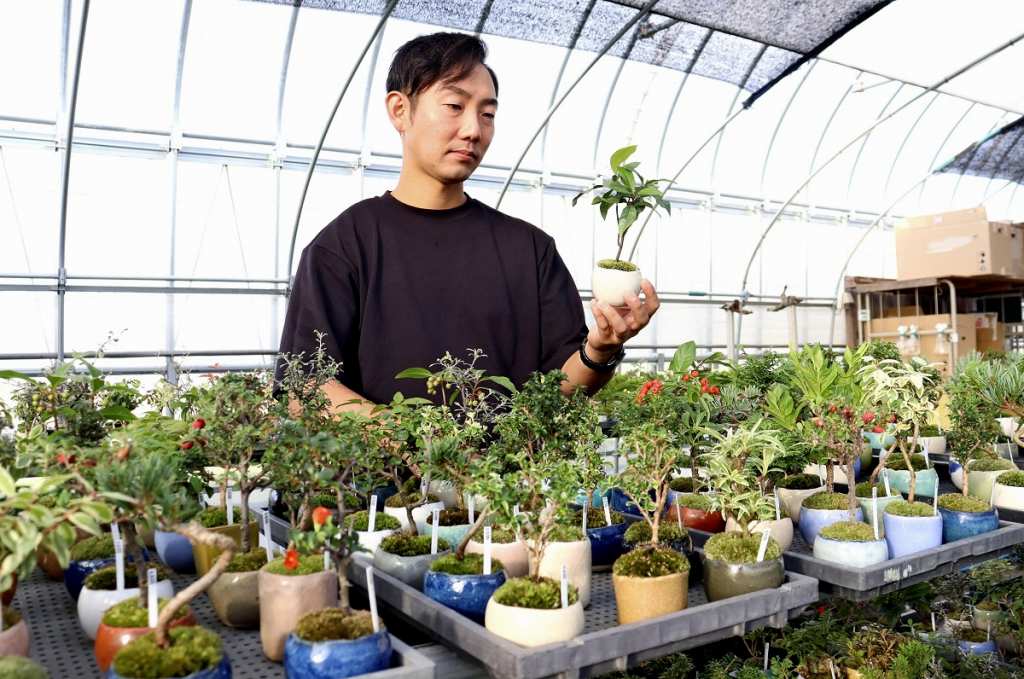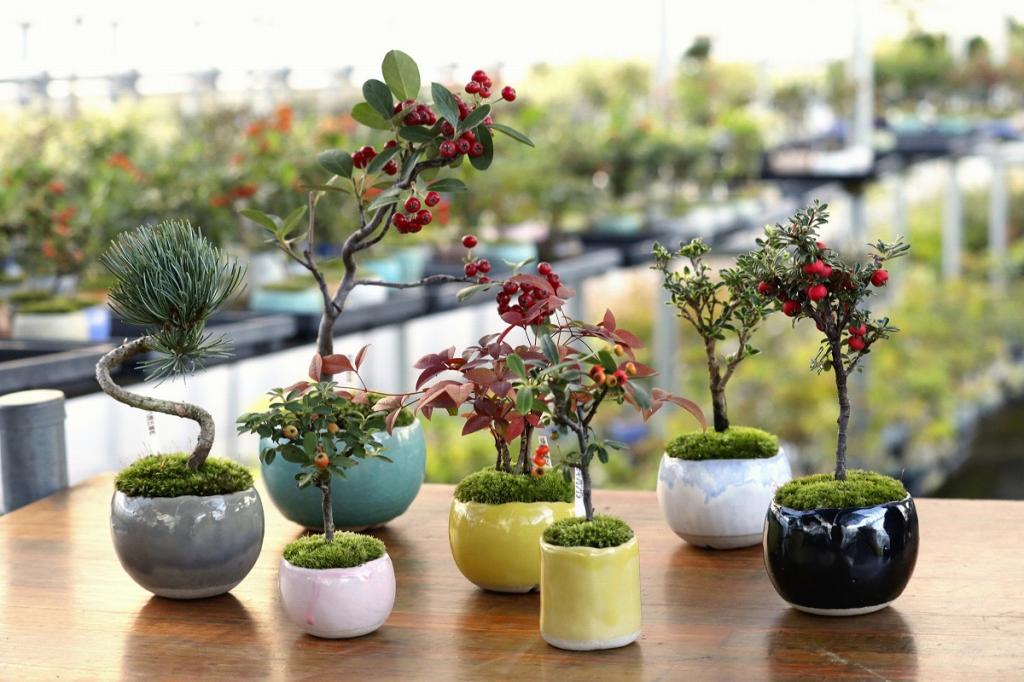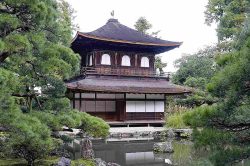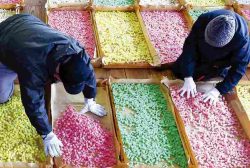
Takuya Goto tends to mini bonsai in Murayama, Yamagata Prefecture, in October.
12:00 JST, January 27, 2024
Mini bonsai, which can be displayed on a tabletop to bring a sense of the season, are being appreciated both in Japan and abroad as an art form that can be enjoyed even in small spaces such as condominiums. They’re also seen as a “cool” form of Japanese culture.
An increasing number of distributors sell miniature bonsai for beginners with the expectation of drumming up interest among young people for something that has long been seen as a hobby associated with older generations.
About 100 types of the trees fill the premises of bonsai distributor Sekibokka in Murayama, Yamagata Prefecture. Included among them are Japanese maples and cherry trees, hakuchoge (snowrose) whose white flowers bloom in spring and autumn, and tokiwasanzashi (scarlet firethorn), which bears red fruit and resembles an apple tree.
The pots that contain bonsai offer a new look at traditional horticulture: Unlike typical brown or gray rectangular ceramics, they are round in shape with a diameter of about 5 centimeters. They are made of Mashiko-ware with a bright blue or yellow glaze.
Koji Goto, the 59-year-old president of Sekibokka, started making bonsai about 20 years ago. Born and raised in Murayama, Goto said he always had a vivid sense of the changing seasons.
“I express these transformations in the small bonsai, hoping that people living in urban areas feel the changes,” he said.
Born into a family of shrine carpenters, essentially the family business since his grandfather’s generation, his many visits to temples and shrines — their clients — helped Goto realize faith and traditional buildings were closely related to nature.
Recalling how he was absorbed in the world of bonsai — his mother’s hobby — as a child, Goto decided to express the beauty of nature through the trees.
Since opening Sekibokka in 2003, Goto has released “palm-size” bonsai that can be placed anywhere.

Mini bonsai fit in the palm of your hand.
The bonsai are around 15 centimeters tall, and the types of trees and the colors of the pots are being offered on a trial-and-error basis using customer feedback. Prices range mainly from ¥4,000 to ¥6,000, a reasonable cost for a bonsai.
The mini bonsai have been viral since Goto’s eldest son, Takuya, introduced them via social media and on the company’s website about five years ago. Takuya joined Sekibokka after graduating from high school.
The company does not have its own store, mainly selling online and at general merchandise stores nationwide. The number of Instagram followers began growing in around 2020 in the middle of the COVID-19 pandemic that caused the public to spend more time at home, and stands at about 30,000.
The company receives messages from users who enjoy living with its bonsai, with comments such as: “It bore more fruit this year than the last year, and they are adorable,” and “I have many kinds of bonsai now.”
In response to requests from overseas, the company opened pop-up stores in Singapore and Hong Kong in October, selling 400 pots in total.
One customer said, “Thank you for sharing your wonderful culture with us.”
An official at the Yamagata branch of the Japan External Trade Organization (JETRO), which Sekibokka has been advising since 2021 about its overseas business, said, “Bonsai is a part of Japanese culture that attracts a lot of attention from overseas.
“There are stores in other prefectures that export bonsai to Europe, where quarantine procedures are strict, and we will support Sekibokka’s global expansion.”
Takuya said “Looking at bonsai from underneath, while holding the rounded pot in my hand, I feel like I’m under a huge tree. After having experienced selling overseas, I’m sure that bonsai, the art of expressing nature and the changing seasons within a container, can be appreciated anywhere.”
Top Articles in Society
-

JAL, ANA Cancel Flights During 3-day Holiday Weekend due to Blizzard
-

Man Infected with Measles May Have Come in Contact with Many People in Tokyo, Went to Store, Restaurant Around When Symptoms Emerged
-

Australian Woman Dies After Mishap on Ski Lift in Nagano Prefecture
-

Record-Breaking Snow Cripples Public Transport in Hokkaido; 7,000 People Stay Overnight at New Chitose Airport
-

Foreign Snowboarder in Serious Condition After Hanging in Midair from Chairlift in Nagano Prefecture
JN ACCESS RANKING
-

Univ. in Japan, Tokyo-Based Startup to Develop Satellite for Disaster Prevention Measures, Bears
-

JAL, ANA Cancel Flights During 3-day Holiday Weekend due to Blizzard
-

Japan Institute to Use Domestic Commercial Optical Lattice Clock to Set Japan Standard Time
-

China Eyes Rare Earth Foothold in Malaysia to Maintain Dominance, Counter Japan, U.S.
-

Japan, Qatar Ministers Agree on Need for Stable Energy Supplies; Motegi, Qatari Prime Minister Al-Thani Affirm Commitment to Cooperation





















